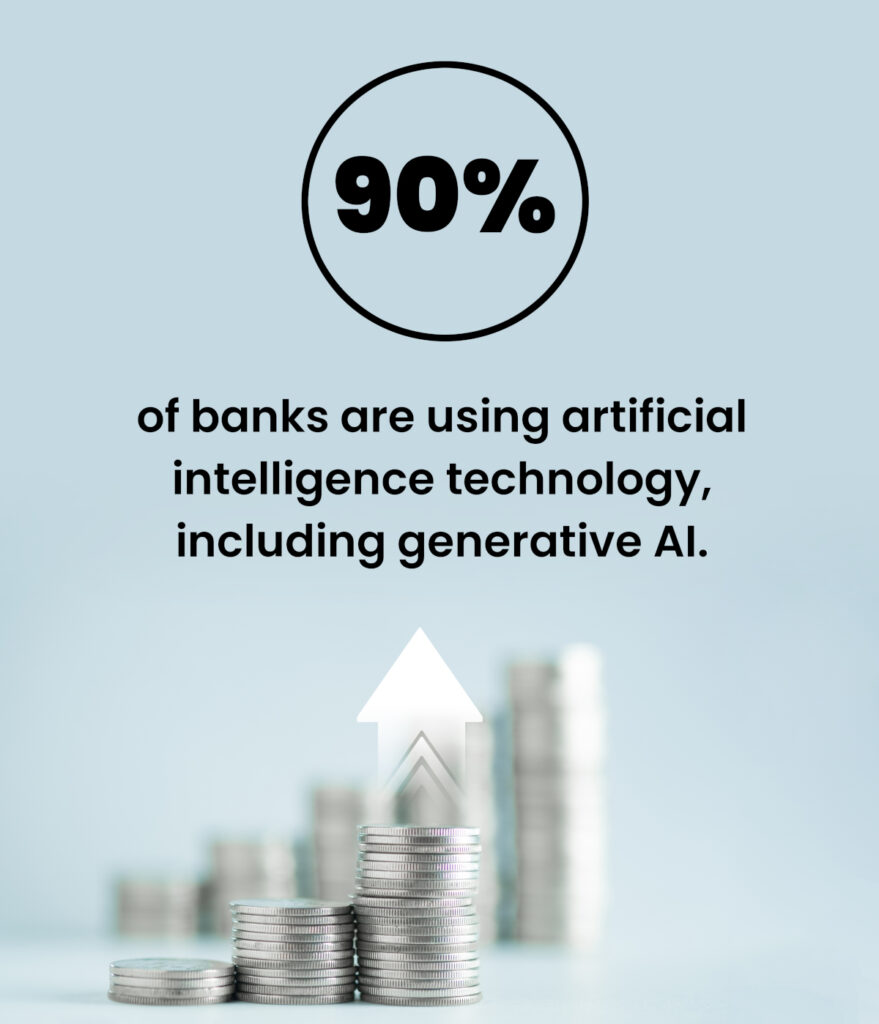Artificial intelligence has been implemented in virtually every industry and the banking and finance industry is no exception. It’s a highly-regulated business space where security is of the utmost importance. This makes AI implementation a bit more complex. Although it’s important to note that regulatory compliance and security account for two of the many areas where financial organizations are deploying AI. So what are the most common and profitable AI implementations in banking and finance?
AI Chatbots for Banking and Finance
Chatbots represent one the most useful and common forms of AI, as this technology can be used to engage customers by answering questions and offering recommendations. Increased engagement on a 24/7 basis is just one benefit; banks may also see a significant drop-off in workload for customer service staff, freeing these employees to focus on higher-level tasks.
Many banking and finance AI chatbots are deployed as part of a larger virtual assistant platform. So while the chatbot feature may be used to handle customer service, an AI virtual assistant can go one step further by offering recommendations based upon a customer’s behaviors, spending habits and other factors.
Bank of America’s virtual assistant Erica serves a range of functions, including chatbot capabilities. She also assists with everything from credit card debt reduction and security advice, to fielding questions concerning Bank of America’s products and services.
According to Bank of America, Erica is amongst the most successful financial virtual assistants / chatbots in the techsphere. Bank of America reports that Erica handled over 673 million queries from 18.5 million users in 2023. This reflects a 28% increase and a 12% increase, respectively, over the prior year’s figure.
Since her launch, Erica has been involved in an estimated 1.9 billion customer interactions. In fact, this financial virtual assistant has been so successful that she was recently integrated into Bank of America’s CashPro Chat app, where she handled over 40% of client enquiries in 2023. This actually dovetails with our next example of AI in banking and finance: integrating artificial intelligence into an existing app or web portal.
AI Implementations in Banking Apps and Customer Portals
Virtually all financial institutions have a mobile app and / or web-based customer portal — digital tools that can see dramatic benefits from the deployment of artificial intelligence technology. Many banks are opting for AI implementations within their existing mobile app or web portal, including chatbots and virtual assistants that can help with everything from loan applications to spending habit analysis and beyond.
Bank of America’s decision to add Erica to its CashPro Chat app is a great example of how a financial institution can leverage its AI in multiple environments, increasing ROI for the organization’s artificial intelligence technology.
Leveraging AI for Loan Decisions
An increasing number of banks and other financial institutions are leveraging AI for its lending decisions. Some loan applicants may have a lukewarm credit rating due to reporting errors or other inaccuracies. Credit reporting sources also fail to consider the applicant’s behaviors and transaction history. An individual’s banking activities and behavior can offer great insights — insights that can be gathered and analyzed by AI. Taken as a whole, an artificial intelligence-powered review of an individual’s behaviors, transactions and credit report may suggest that lending to an applicant would be relatively low-risk. Using AI for lending decisions can be especially useful in cases where an individual has limited credit history.

AI for Cybersecurity and Risk Assessment
An ever-growing segment of the banking and finance industry is turning to AI for cybersecurity and risk assessment. Multimodal machine learning-powered AI can perform evaluations and assessments with remarkable efficiency, making it possible to find patterns and trends that a human may fail to identify. This is especially important when it comes to cybersecurity, but AI can also perform risk assessments for areas beyond the cyber realm. If there’s data available, you can train a machine learning model and harness the power of artificial intelligence. This makes AI an integral part of a financial institution’s risk management strategy.
AI for Regulatory Compliance
Banks and financial institutions are subject to some of the most stringent regulatory oversight of any industry. An increasing number of banks are turning to artificial intelligence for regulatory compliance monitoring and the identification of non-compliance issues. It’s also possible to use AI in conjunction with process automation so as to minimize the chances of non-compliance. This is achieved by partially or fully automating the processes that are required in order to maintain compliance. AI can even be used to issue notifications when an incidence of non-compliance is identified.
AI Implementations in Banking to Identify Market Trends
Of the many possible AI implementations in banking, trend identification is one of its major strengths. That’s because machine learning and artificial intelligence are especially good at detecting patterns and trends long before they’re apparent to a human analyst. The financial industry has collectively recognized this strength, leading to AI implementations that are designed to look for patterns and recommend the most effective method for taking advantage of a trend. With the right AI technology, banks can identify and seize upon those up-and-coming trends, increasing profitability in some dramatic ways. This is perhaps one of the most compelling use cases for AI and machine learning in the financial space.
Hiring a Top Dallas AI Development Company for Your Project
Our world-class team of machine learning and artificial intelligence developers will work to identify challenges within your organization; then, we’ll create a value-generating solution with innovative technologies that align with your business strategy. This problem → solution approach to AI development has the potential to bring about exceptional results, in addition to generating new, profitable opportunities.
7T’s AI development team is guided by the approach of “Digital Transformation Driven by Business Strategy.” As such, the 7T team works with company leaders who are seeking to solve problems and drive ROI through Digital Transformation with innovative business solutions such as multimodal machine learning-powered AI implementations. 7T has offices in Dallas, Houston, and Charlotte, NC, but our clientele spans the globe. If you’re ready to learn more about AI in banking and finance, contact 7T today.









